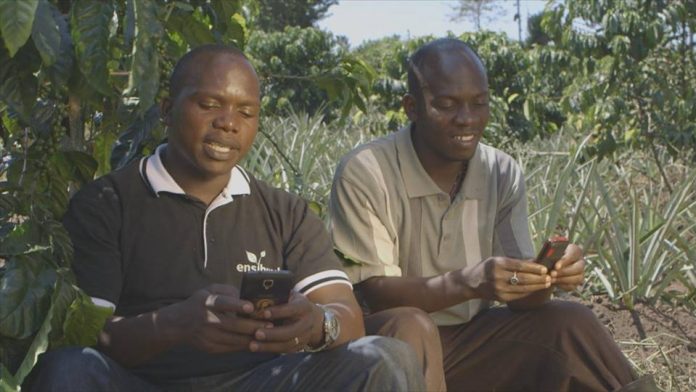Almost four years ago when youth unemployment was at its peak and everyone was clamoring for a steady job, Gerald Otim decided to walk into the world of self employment. Having had a humble beginning, he was no stranger to starting small and therefore he ventured into the building a solution that would improve financial service delivery in rural communities.
In 2014, Gerald A Fin-Tech Entrepreneur and a graduate of Development Economics at Makerere University Co-Founded Ensibuuko, a Ugandan ICT startup that is modernizing the way financial cooperatives (popularly known as SACCOS – Savings and Credit Cooperatives) manage data and deliver financial services.
“We are providing modern electronic banking infrastructure to financial services entities unique to the developing world. Our main service is a cloud-based banking software platform for microfinances and SACCOS. The platform automates business processes, customer and transactional dataand provides standard accounting and reporting functionality for Ensibuuko’s customers.” Gerald explains.
Ensibuuko’s software is a cloud-based MOBIS Micro-Finance Software first designed at the Kampala based ICT hub, Outbox and is creating a solution that allows for web services even in rural areas with poor telecom infrastructure thereby contributing significantly to the efforts for financial inclusion in Uganda and across Africa.
The Start Up’s software is also integrated to the mobile phone network allowing users to access their account via mobile phone — they can check the balance, make deposits and withdraw. This improves access and quality of service delivery.
“Our solution is integrated with Mobile Money thus people in hard-to-reach places can be part of the easy access of the service. We are now using partnerships with mobile Network Operators to deliver a dedicated internet bundle that enables institutions access the solution on cloud even on weak networks for just 30,000 shillings a month ($8).” Gerald notes.
The platform therefore exists to equalize financial services in Uganda as is the case in many other African countries where banks are urban based. People in rural communities will be served mainly by a cooperative institution.
According to Ensibuuko, there are major issues in the financial services sector in the developing world: Banks are concentrated in major towns, Services are expensive and loans have interest rates of not less than 24%. It is part of the general problem of poor and expensive financial services infrastructure in all of the developing world. Instead of working with banks, most people will prefer a non-bank financial institution mostly in the nature of a Cooperative financial institution such as a Savings and Credit Cooperative (SACCOS) or Credit Union.
“These institutions usually have no access to modern infrastructure and they rely a lot on human resources for their operations as they continue rudimentary means to manage financial information and make decisions,” Gerald notes.
To date, Ensibuuko’s business volume is 151 SACCOS reached in 2 years. Of these, 14 are newly signed, 35 are active on the Mobis platform and 102 are on their current pipeline in Uganda. There are over 14 other institutions in 3 other African markets that are currently in business with Ensibuuko through its recently established franchises in Zambia and Tanzania. Ensibuuko has raised 1 Million USD in funding (500,000 of which came through a recent Equity investment deal) and maybe the first ever ICT startup with Ugandan-only founders to raise this much funding within its first two years of existence.
Inefficiency, human error, fraudulent tendencies have become typical of these institutions and is undermining their role in delivering financial services to the under-served. In Uganda, there are over 6000 registered SACCOS serving 18 million people. It is estimated that there are over 300,000 of such institutions in Africa. By using technology to strengthen financial institutions, Ensibuuko has the potential to significantly disrupt the rural financial services sector not just in Uganda but across Africa.
Like this story or have something to share? Email us at info@thisisuganda.org or connect with us on Facebook and Twitter.




















